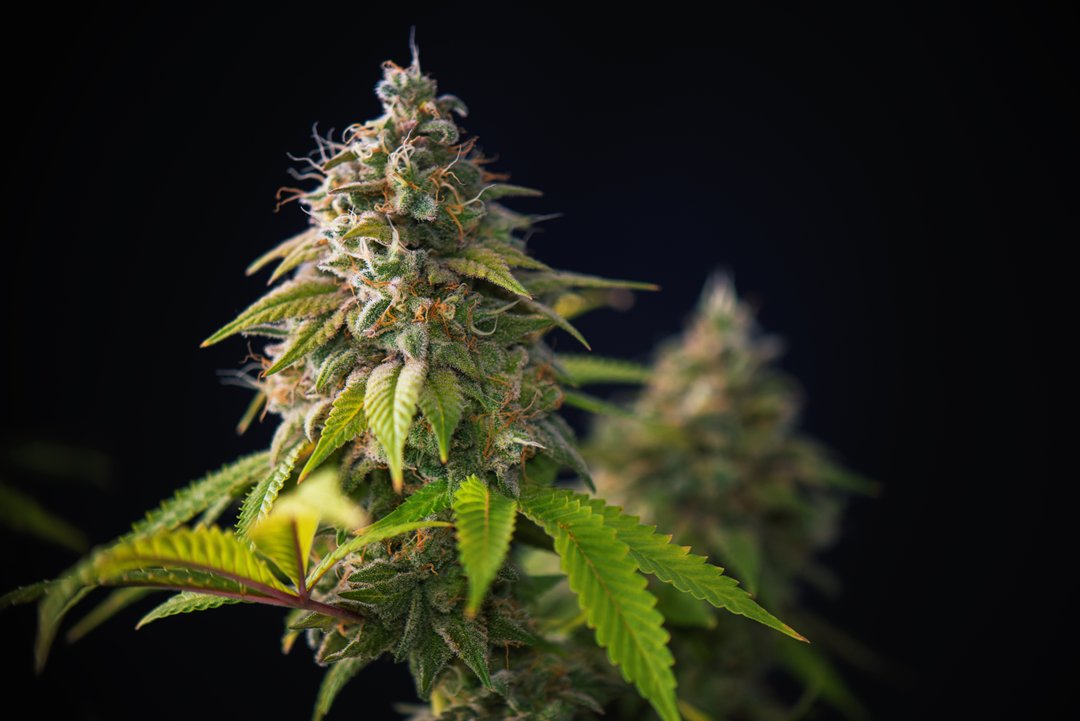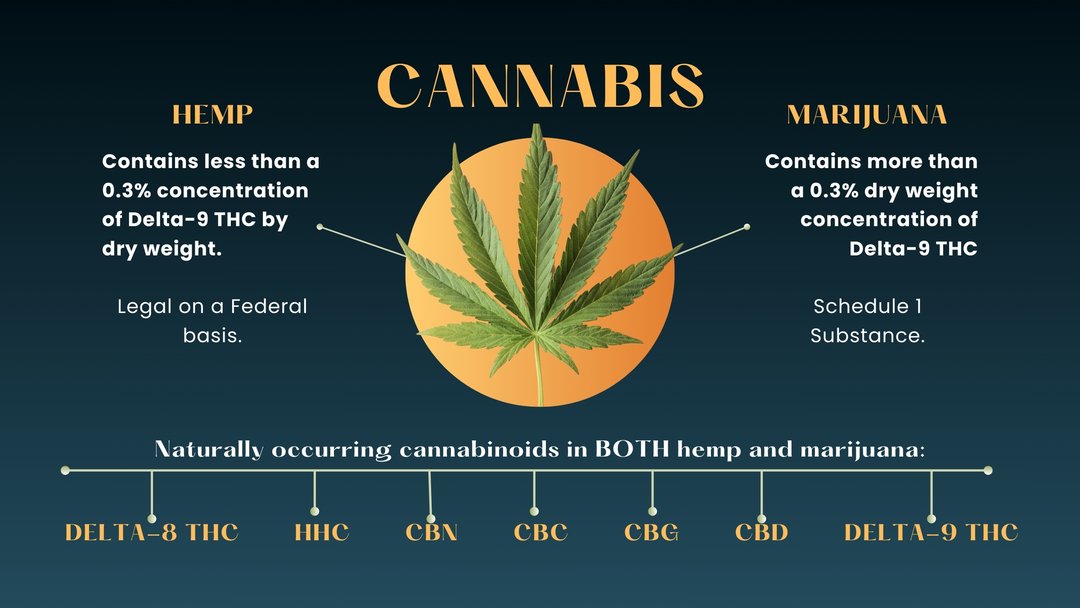By now, it may be clear that comparing Delta-8 to weed is like comparing caffeine to coffee.
Delta-8 is in weed like caffeine is
in coffee.
Delta-8 THC is a minor cannabinoid that occurs naturally in cannabis plants (both hemp and marijuana) but in much smaller amounts than Delta-9 THC, which, as previously stated, is the primary psychoactive constituent in these plants.
Since Delta-8 occurs in such small amounts, it is usually synthesized from another natural cannabinoid like CBD to be infused into products. This doesn't necessarily mean Delta-8 is "synthetic," just that it is produced from other natural compounds. If you ate, say, a Delta-8 gummy, you are consuming it in an isolated form.
Delta-8 THC is in marijuana, but
Delta-8 products are all hemp-derived, so they don’t have as many legal restrictions as marijuana in general.
Marijuana can only be legally purchased and possessed in certain states, but it cannot be shipped across state lines. Delta-8 is legal in most states, can cross state lines, and can even be bought from the comfort of your home.
That being said, if you were to smoke marijuana, you are consuming not only Delta-9 THC, but also several minor cannabinoids like CBD and, yes, even Delta-8. Since Delta-9 THC occurs at higher concentrations in marijuana, however, you are typically going to feel this major cannabinoid's effects more than anything else.
Effects of Weed vs. Delta-8
As mentioned above, Delta-8 is in weed but it's so minor that you can't really make out its effects until it's isolated. Delta-8 THC by itself has less intense effects than the main compound of weed, Delta-9 THC, because of its chemical structure, producing a distinctly milder high. Enthusiasts describe their experience with Delta-8 as a unique feeling of euphoria with an uplifting and relaxing bodily sensation.
Because Delta-8 THC binds differently to the brain's CB receptors than Delta-9 THC, it exhibits “lower psychotropic potency.” In other words, those who have experienced adverse side effects when consuming weed (for example, high levels of anxiety and paranoia) will likely not see those effects when consuming Delta-8. Just remember that due to idiosyncracies in individuals' endocannabinoid systems, cannabinoids affect everyone differently.
Generally, Delta-8 THC is used for its potentially therapeutic benefits, such as providing relief, while marijuana is used for recreational and, in some prescription-based instances, medicinal purposes.
Delta-8's lower potency, wider accessibility, and euphoric effects have made it a beloved choice among many cannassuers.
Recap and Conclusion
At the end of the day, you should choose the product that makes the most sense for you. While marijuana does have its place (namely in states where its use is legalized and for those who qualify for medicinal marijuana programs), Delta-8 offers unique benefits.
For one, you can order it online, find it in most states, and of course, it is federally legal.
The key points to consider when making a choice between these are that:
- Marijuana (weed) and hemp are two forms of the same plant species, cannabis, and differ solely in terms of their Delta-9 THC concentration.
- The difference in Delta-9 THC concentration by dry weight is what then defines the legality of both hemp and marijuana.
- Hemp, and its derivatives, are legal on a federal level according to the 2018 Farm Bill, while marijuana is a Schedule 1 Substance.
- State regulations on both vary.
- Delta-8 THC and Delta-9 THC are among over 100 cannabinoids that are found naturally in both marijuana and hemp.
- Delta-8 THC is a minor (less abundant) cannabinoid with less potent effects, while Delta-9 is a major (more abundant) cannabinoid with more intense effects.
- Delta-8 products usually contain just Delta-8, whereas Marijuana contains a high concentration of Delta-9 THC and other minor cannabinoids.
- If Delta-9 or Delta-8 are derived from hemp, they are federally legal.
Until next time, happy exploring and mind your mind!
FDA Disclaimer: The statements made regarding these products have not been evaluated by the Food and Drug Administration. The efficacy of these products has not been confirmed by FDA-approved research. These products are not intended to diagnose, treat, cure, or prevent any disease. All information presented here is not meant as a substitute for or alternative to information from health care practitioners. Please consult your healthcare professional about potential interactions or other possible complications before using any product. The Federal Food, Drug, and Cosmetic Act requires this notice.


